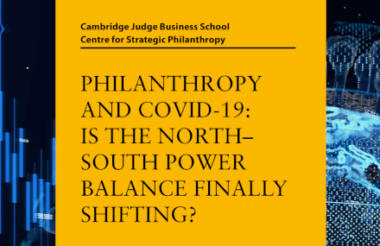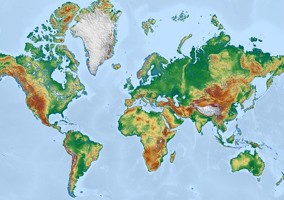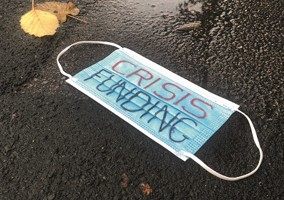Local organisations in the Global South have acquired more power and independence during the coronavirus pandemic, a report on global philanthropy has found.
The report, Philanthropy and Covid-19: Is the North-South power balance finally shifting?, was published by the newly-established Centre for Strategic Philanthropy at Cambridge University and based on in-depth interviews with social organisations in the Global South and foundations.
The report found that the pandemic has initiated a shift in the traditional power imbalance between foundations in the Global North and charities in the Global South, with local organisations acquiring more control of resources.
However, it also says that this progress is “fragile” and “patchy”, and calls for global philanthropy to turn it into long-term change.
Progress
Traditionally, most of the money and resources going towards development in the Global South are harnessed by philanthropists and foundations in the North, which end up having a great influence on programmes and practices despite lacking local knowledge and experience.
The report found that some of this changed during the pandemic. For example, local charities started to rely more on local funding and to develop fundraising collaborations. There has been more innovation and a shift towards digital.
It also found that the pressure that Covid-19 put on these organisations prompted them to be more direct in expressing their needs.
Grantmakers also responded positively, simplifying their procedures and being more flexible, for example by allowing grantees to repurpose existing funds to pay for salaries and core costs.
The report says: “Our findings reveal a deep sense of dissatisfaction with the status quo. It is clear that the urgency and unexpectedness of Covid-19 has shaken up the existing mechanism for identification of programmes and fund disbursement.
“As public health came to attract the vast majority of resources in this period, old understandings of who should play what role in the North-South relationship have been seriously called into question.”
Call to action
The report calls for global philanthropy to apply the lessons learned during the pandemic and turn them into long-term change.
It calls for three key steps: “fund networks to improve infrastructure, capacity and knowledge”, “improve partnerships between Global South governments and Global South philanthropists”, and “build resilience in the Global South by funding core costs rather than only project-specific funding”.
Kamal Munir, academic director of the Centre for Strategic Philanthropy and reader in Strategy and Policy at Cambridge Judge Business School, said: “The shift in the power dynamic that our research revealed is clearly nascent, fragile and patchy.
“However, it shows some early indications of practices that if nurtured and retained could potentially transform the relationship between Global North and Global South philanthropic actors. This in turn could lead to positive operational and policy outcomes that can help deliver more sustainable and scalable social impact.”












